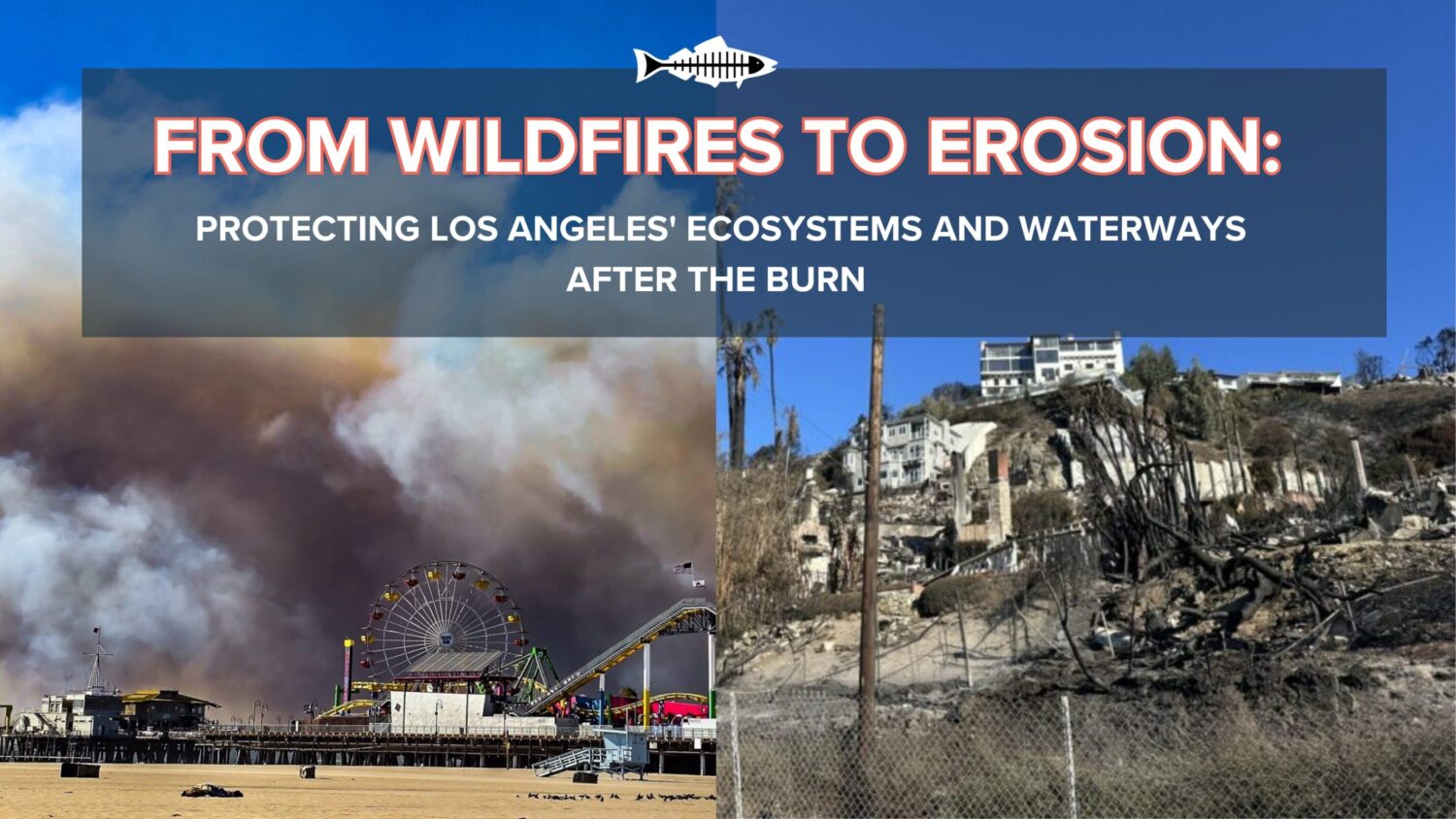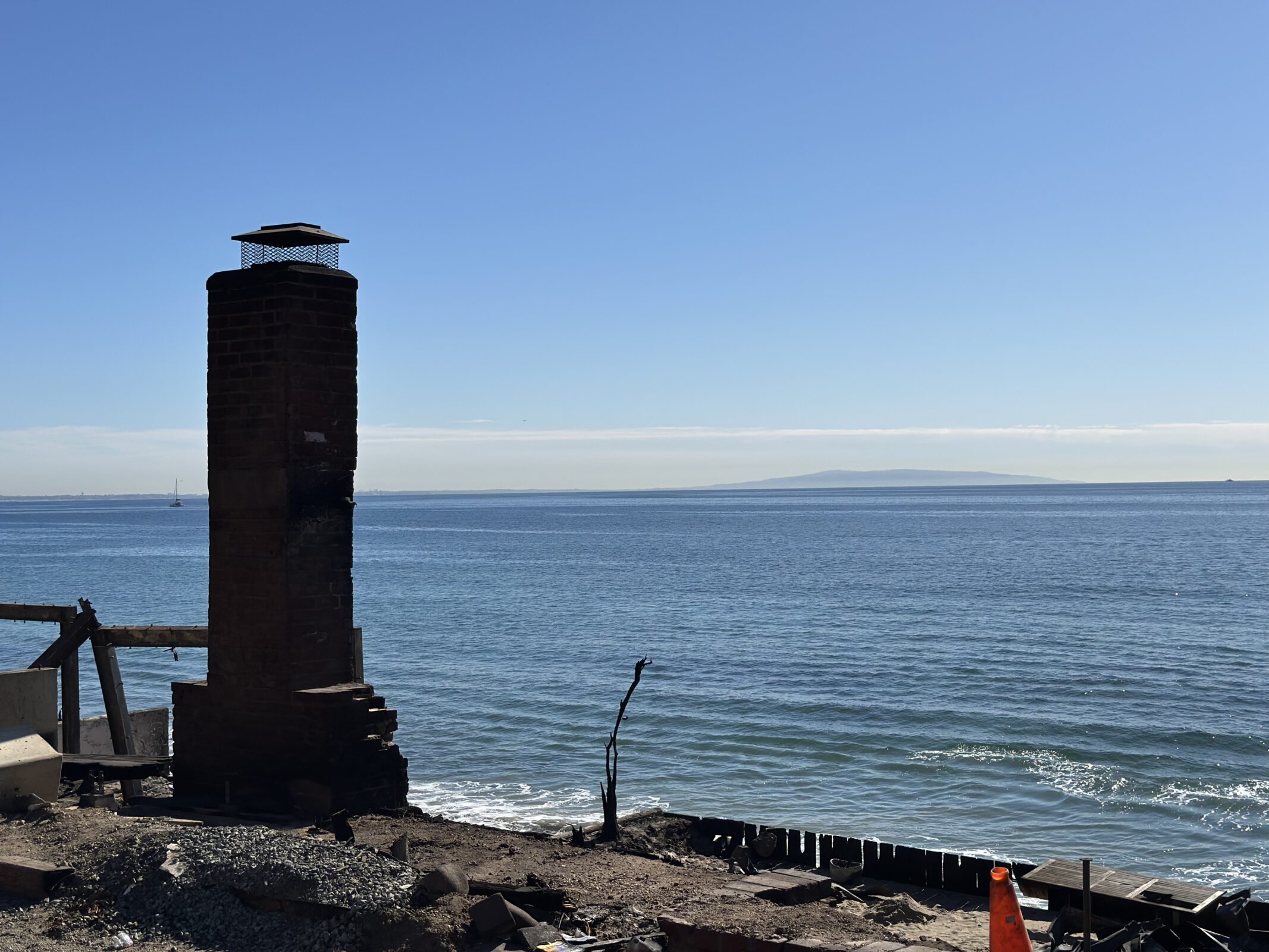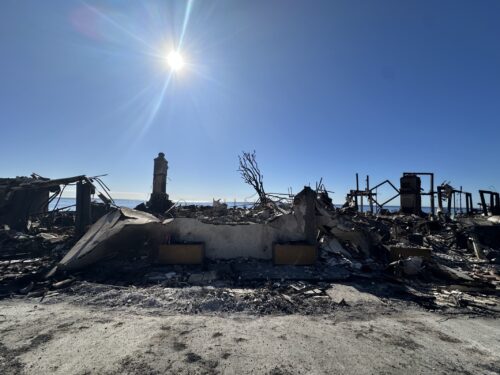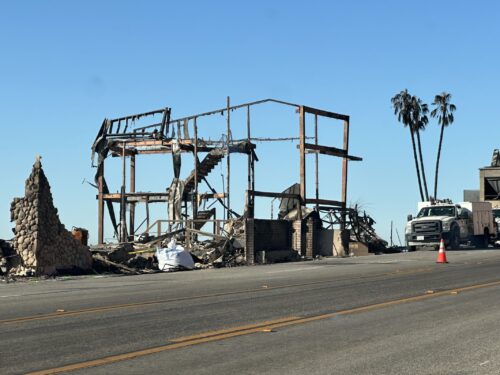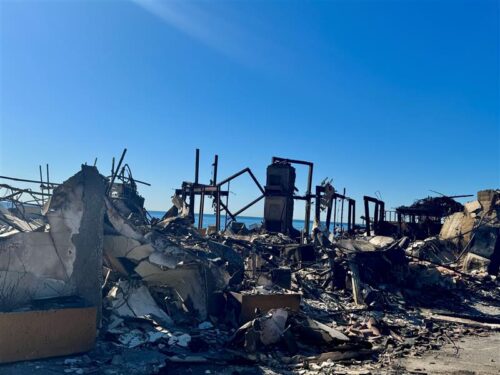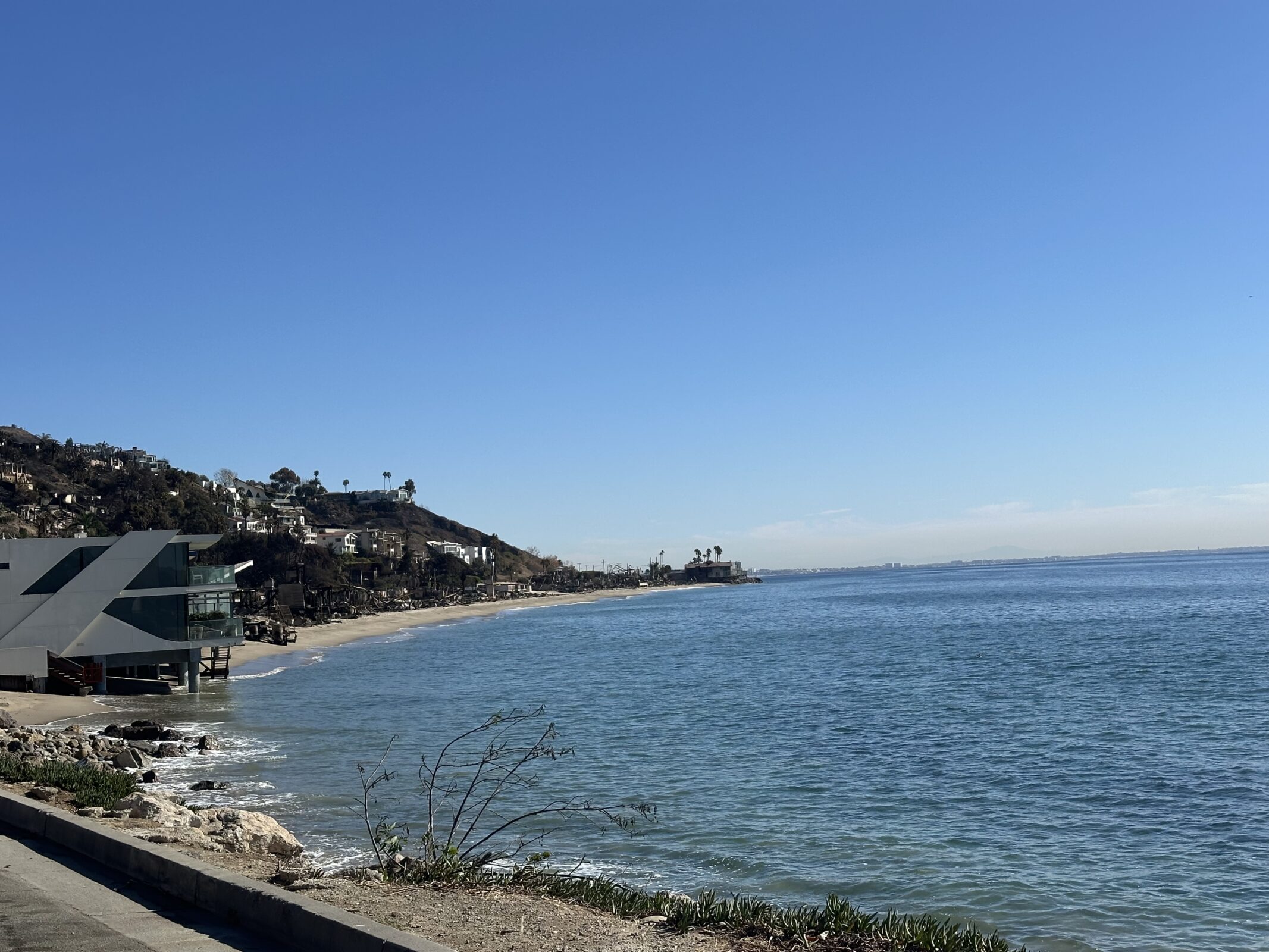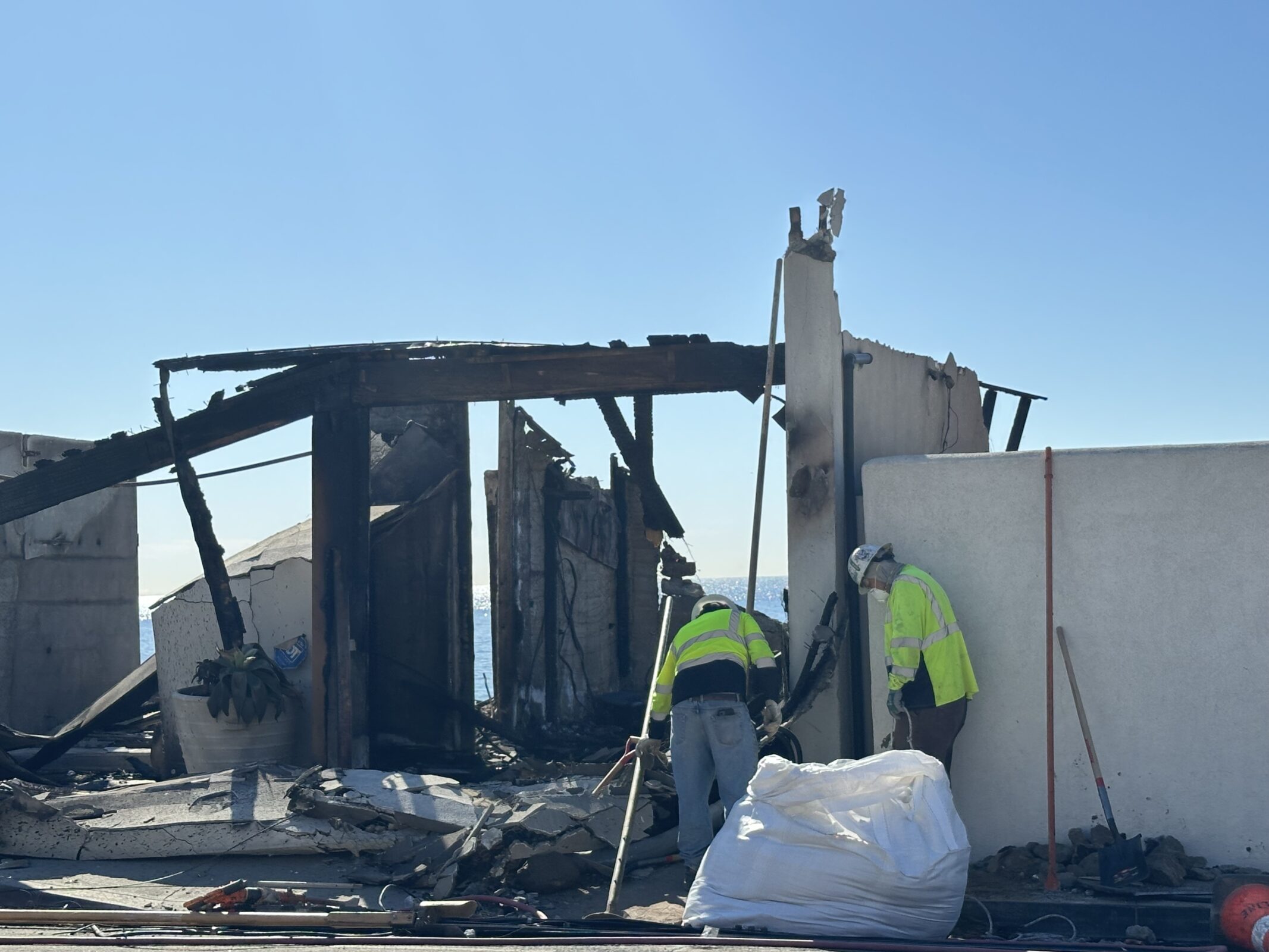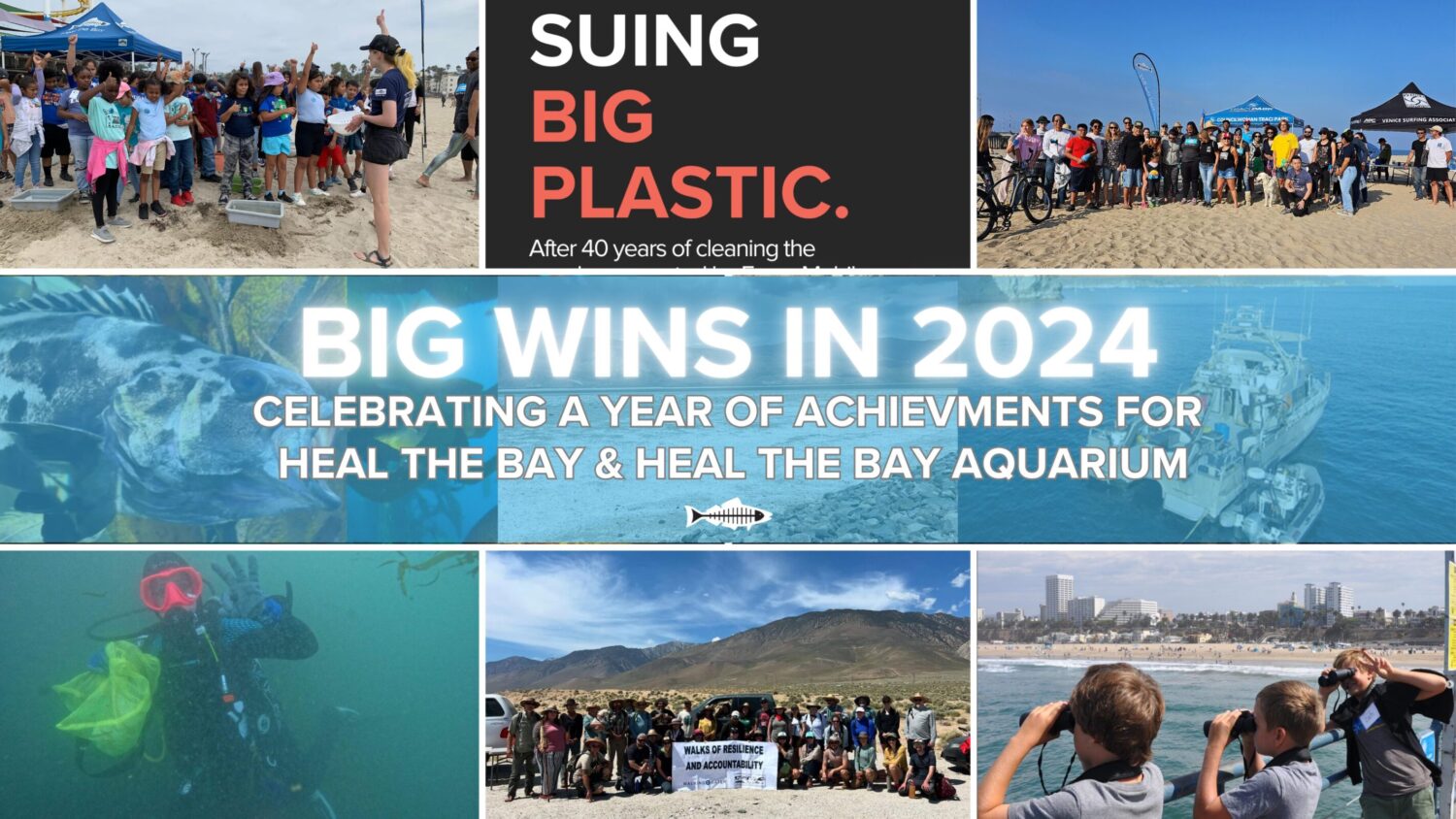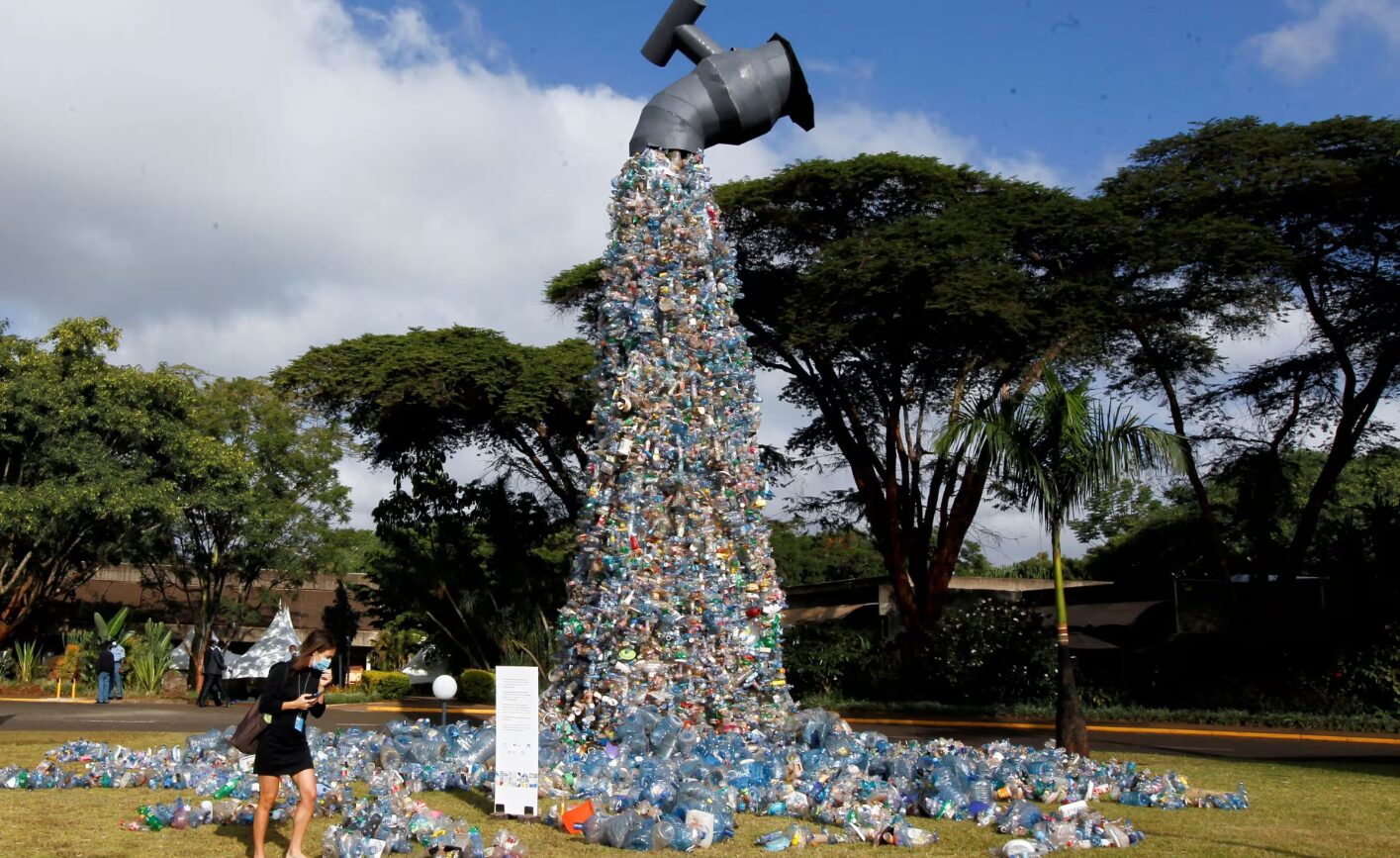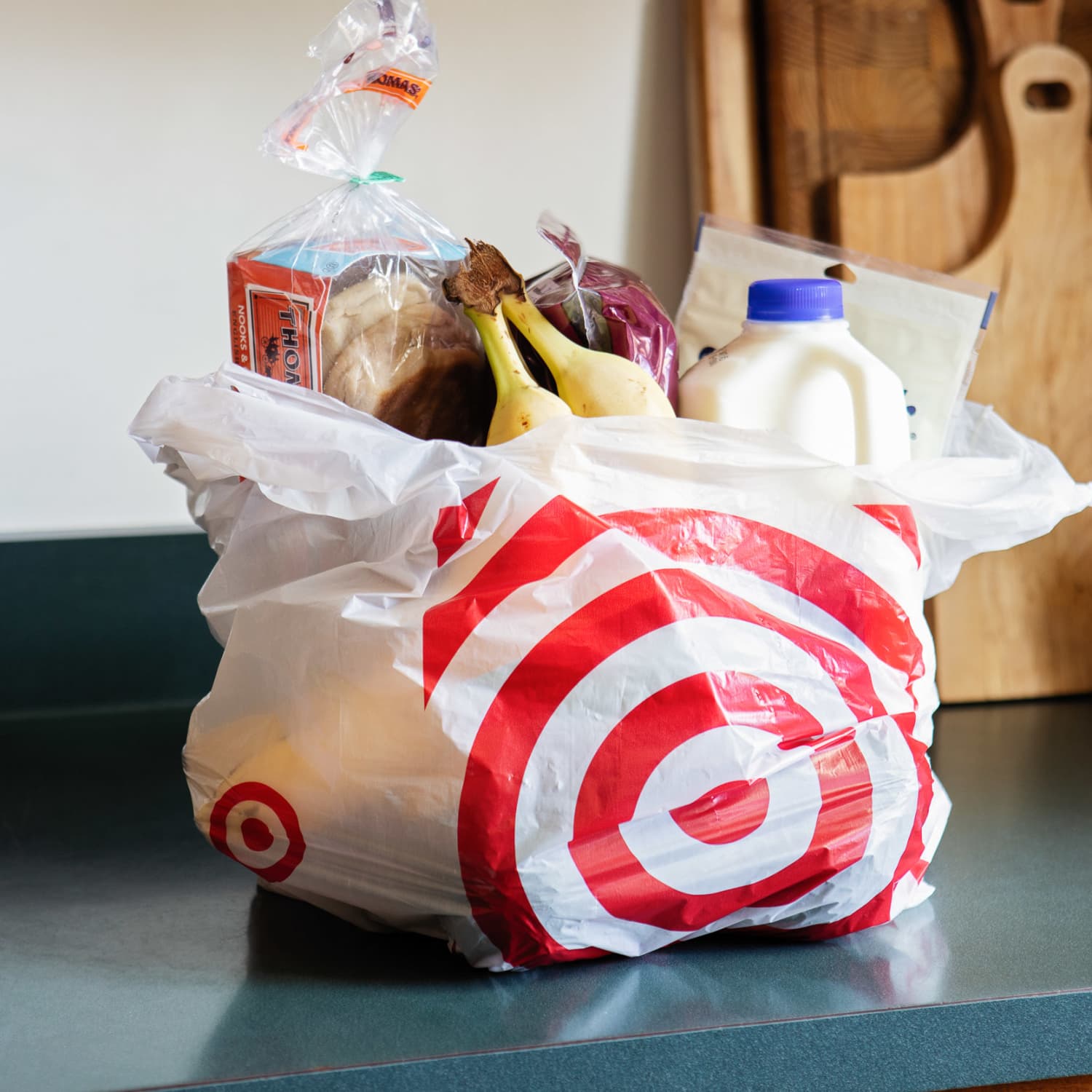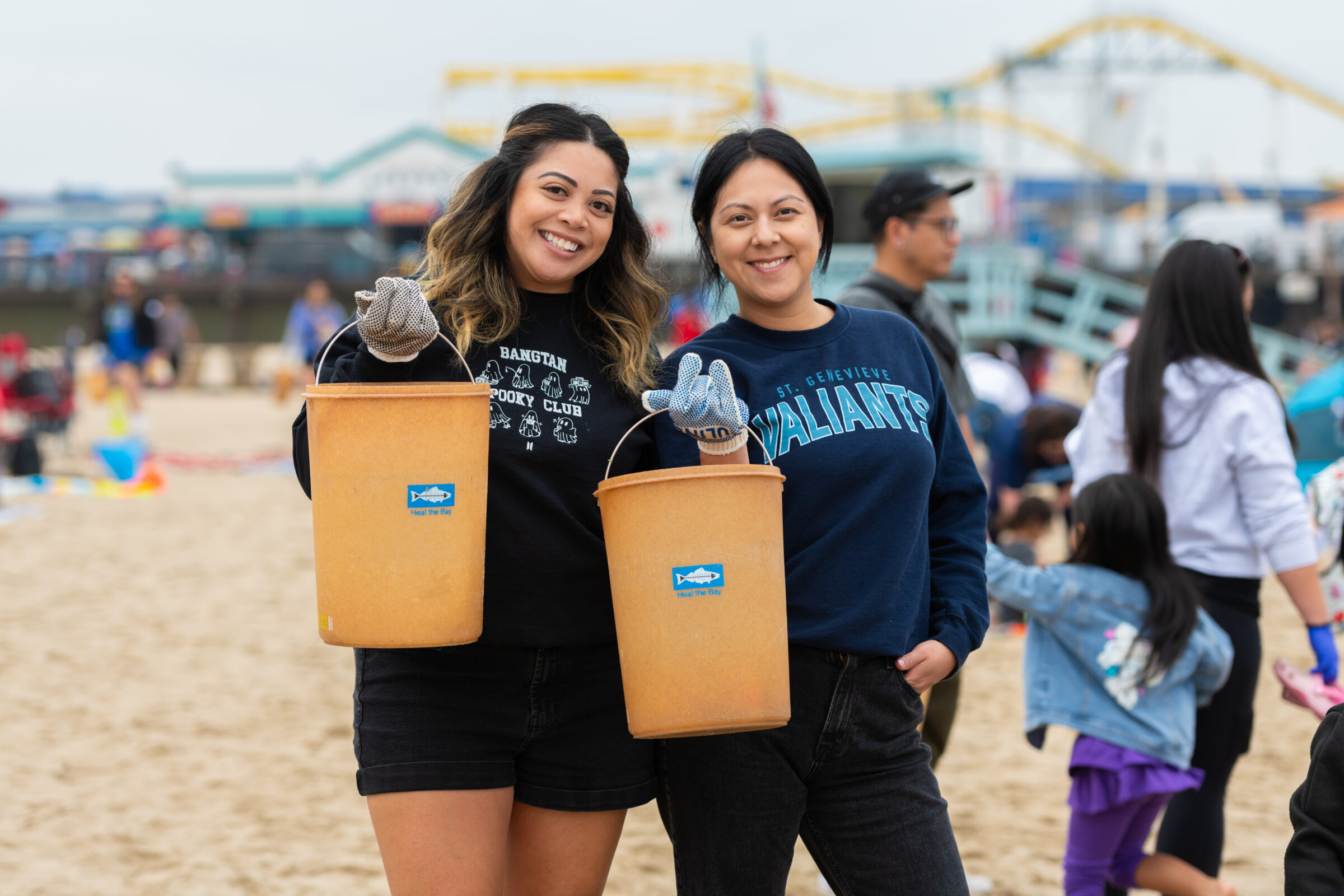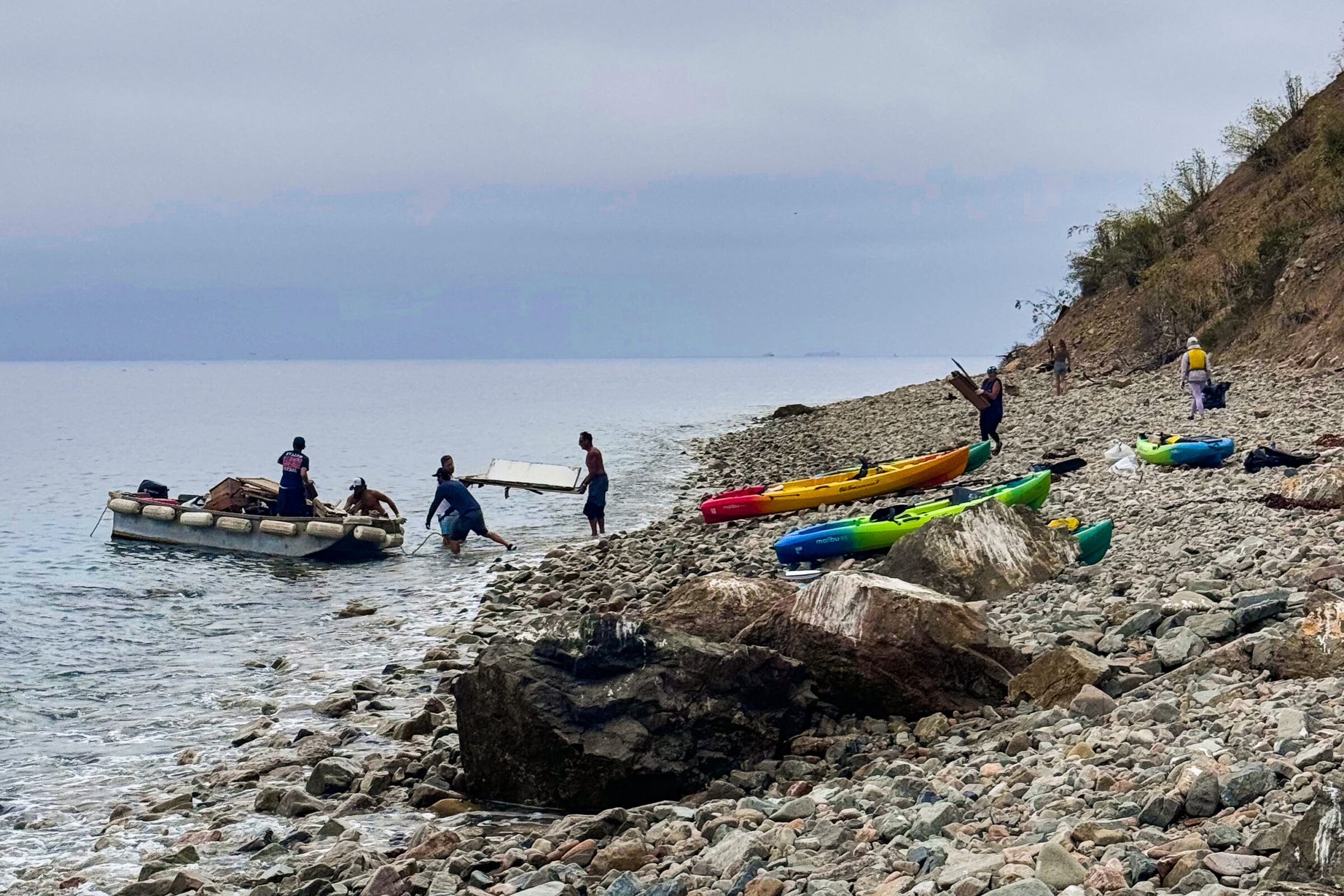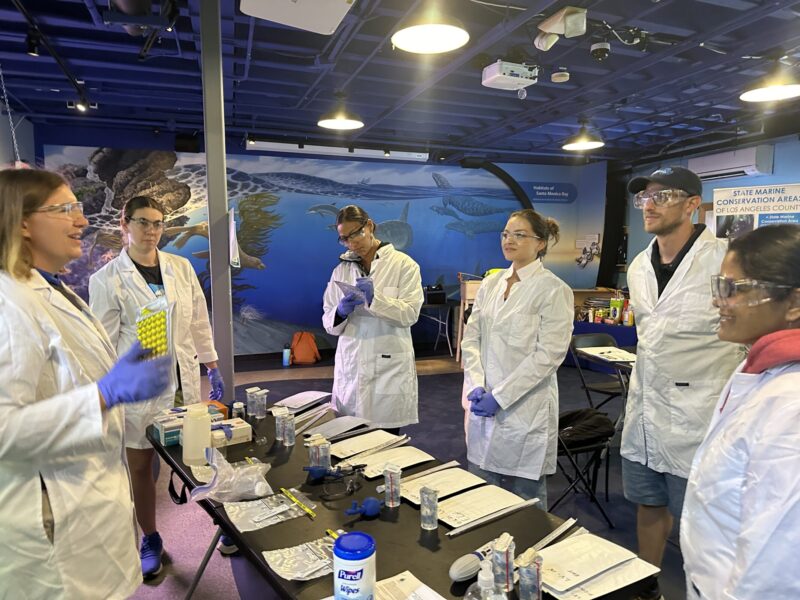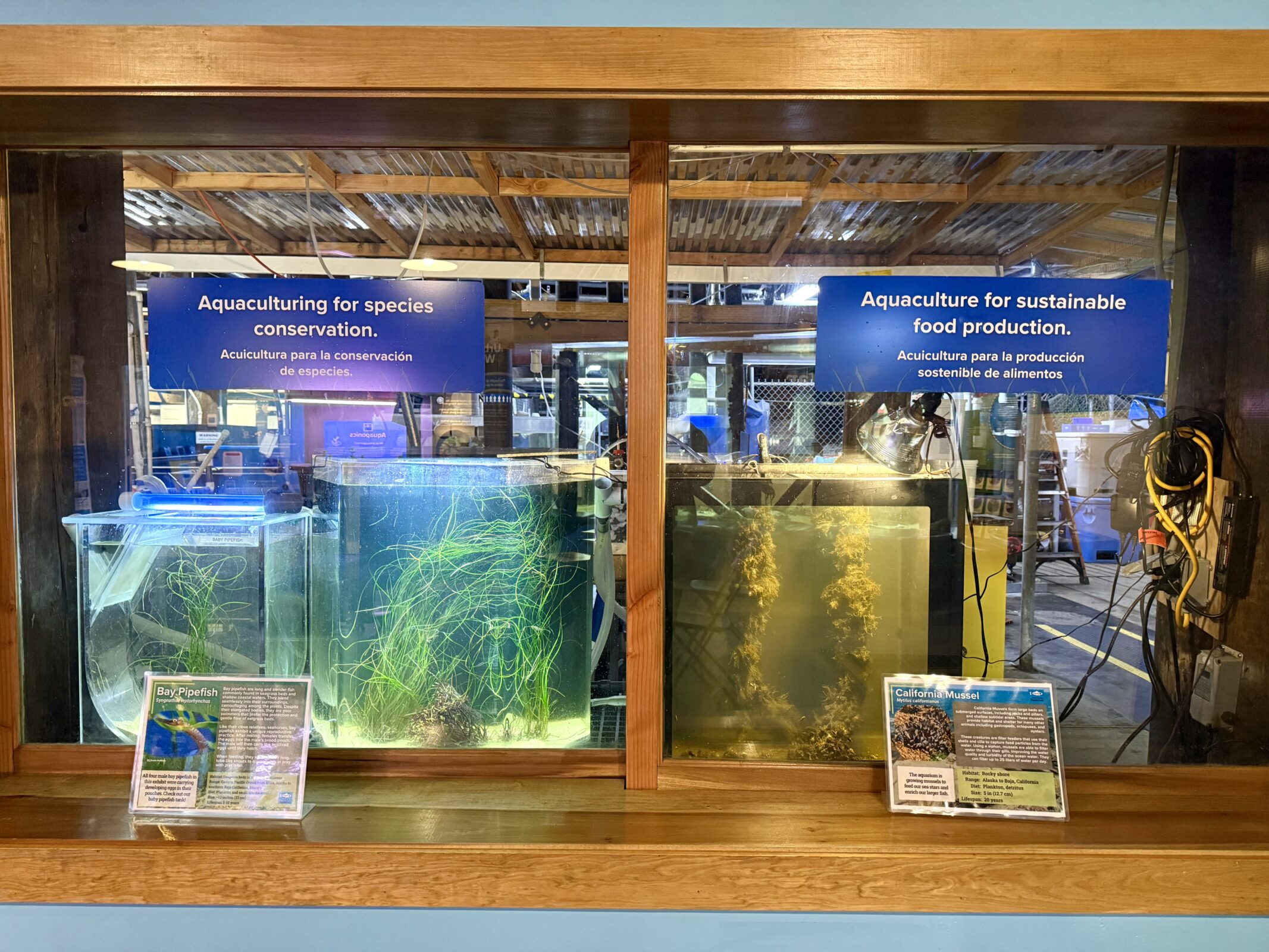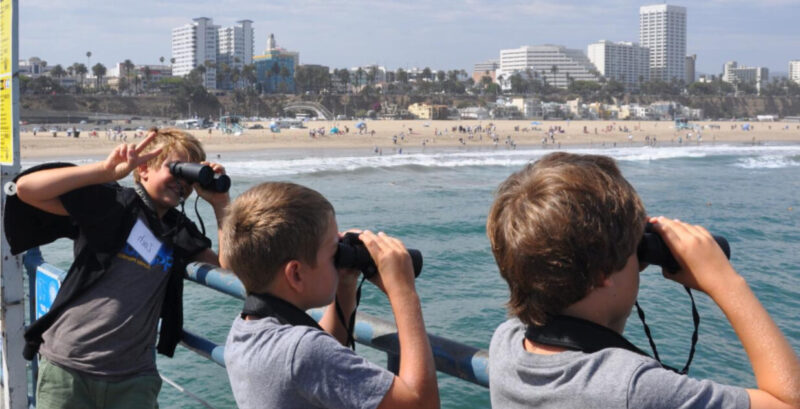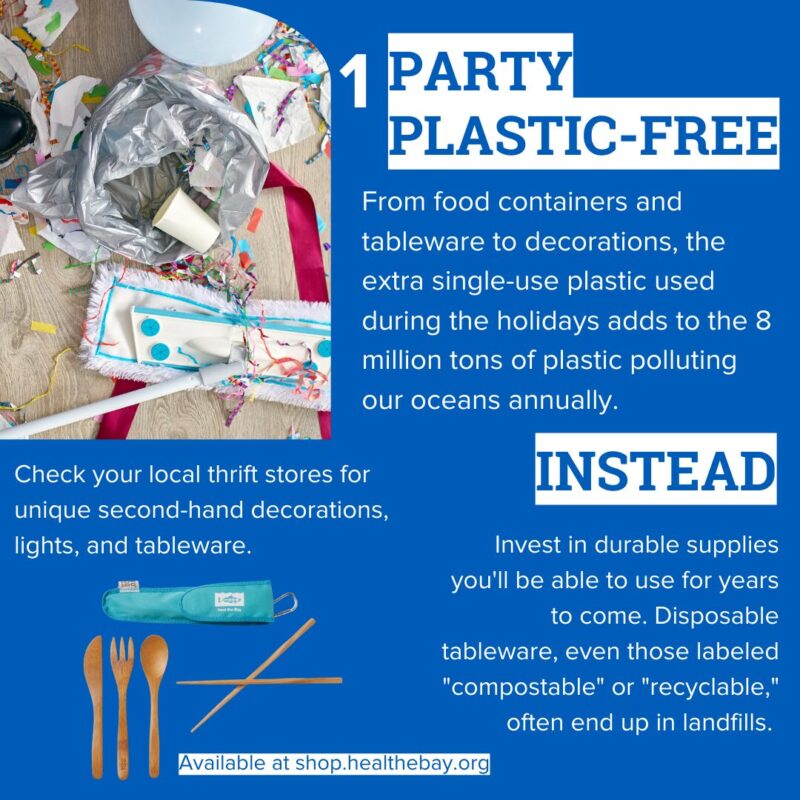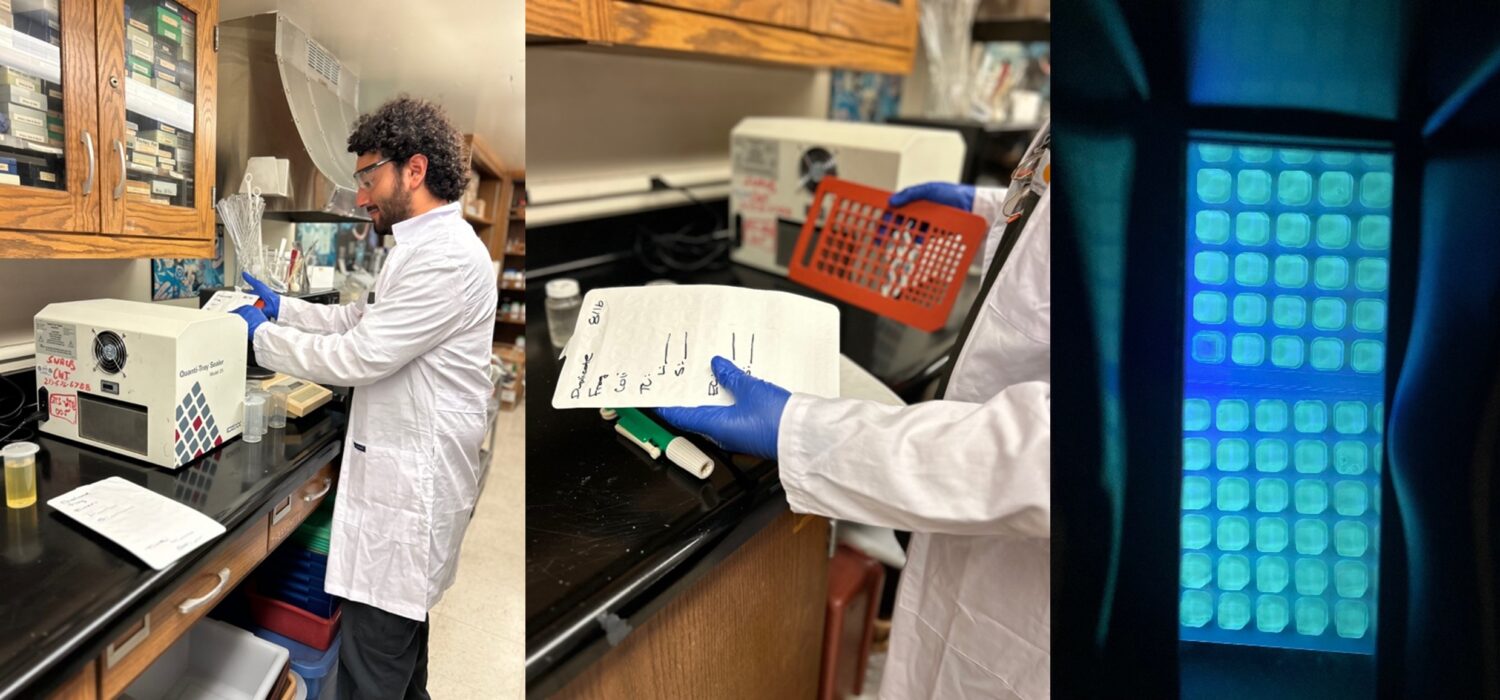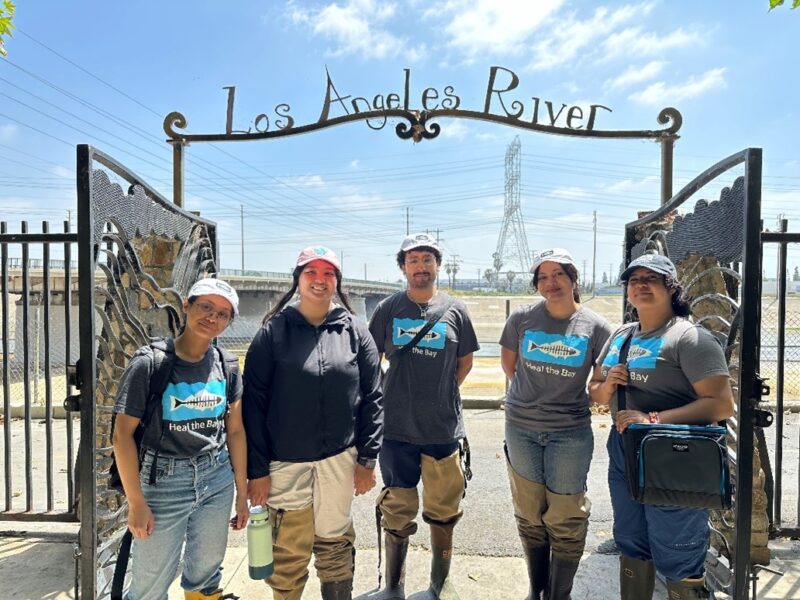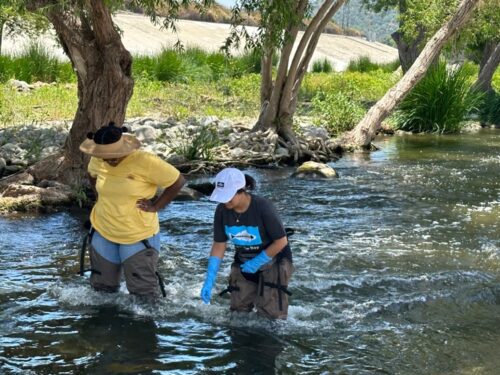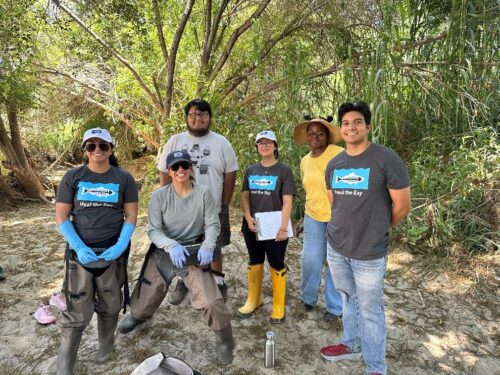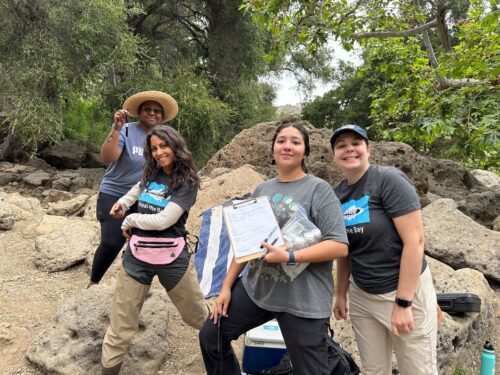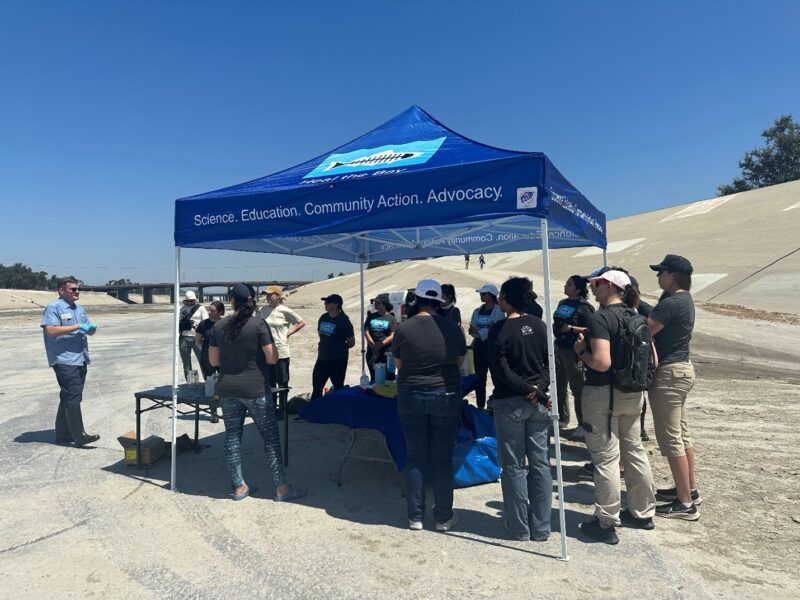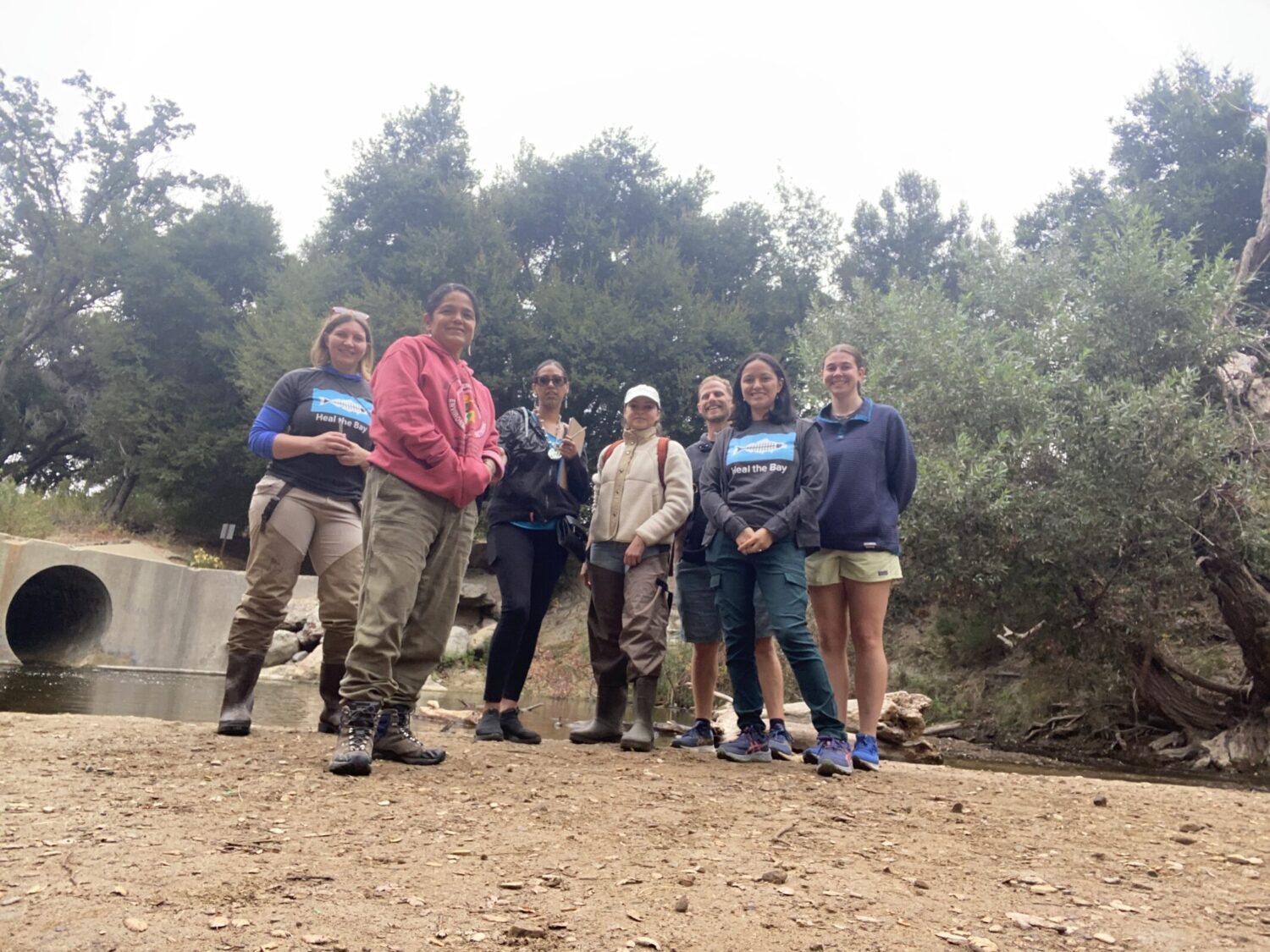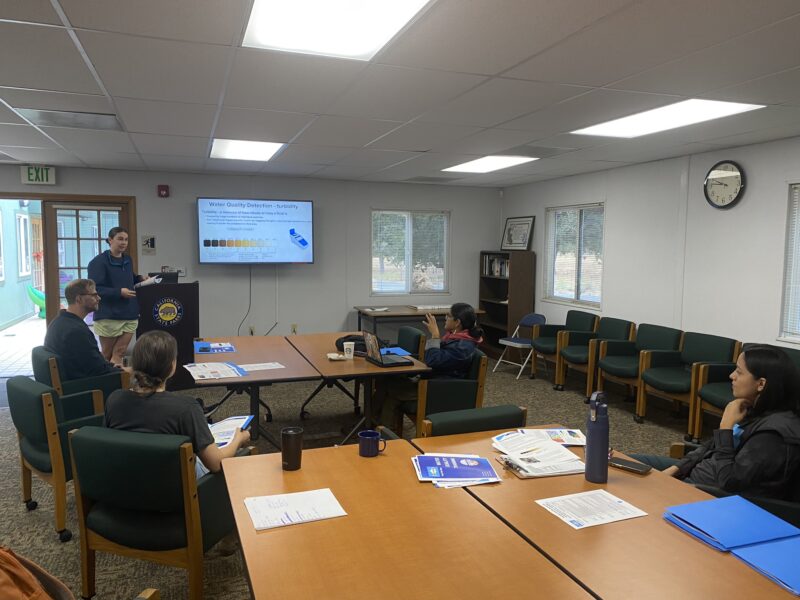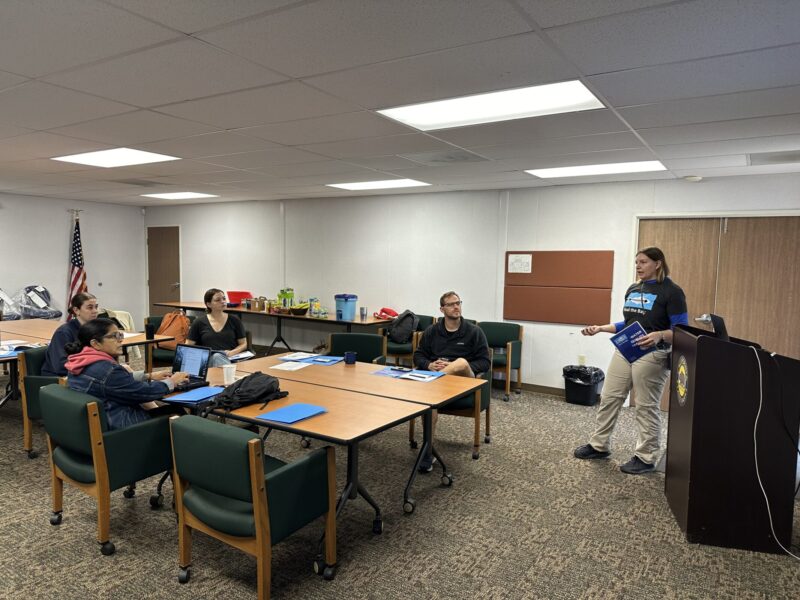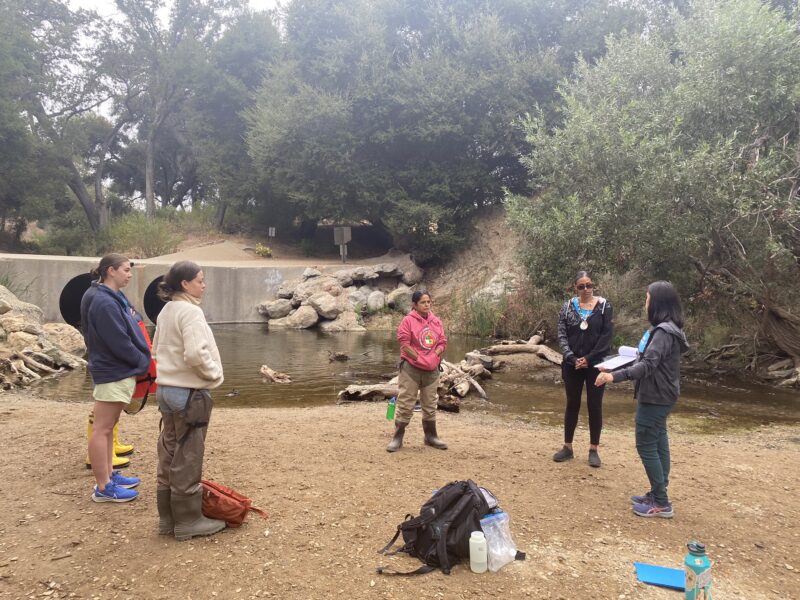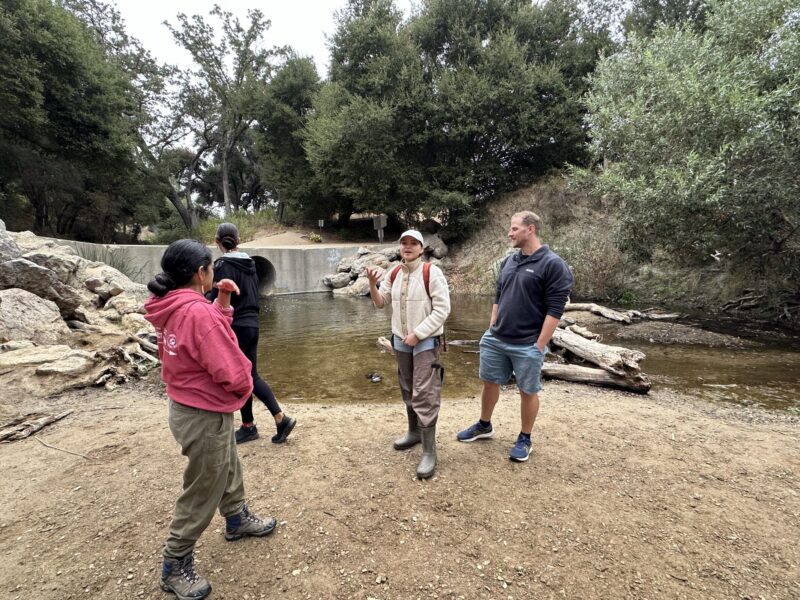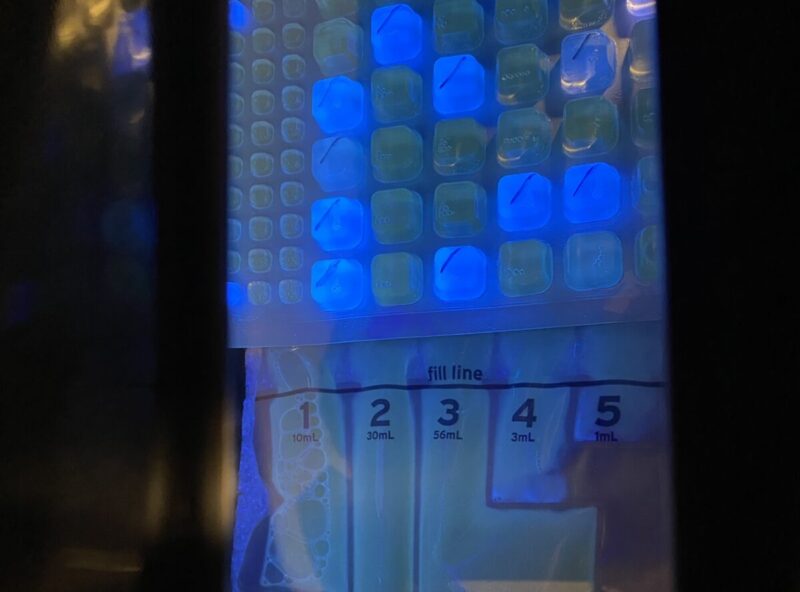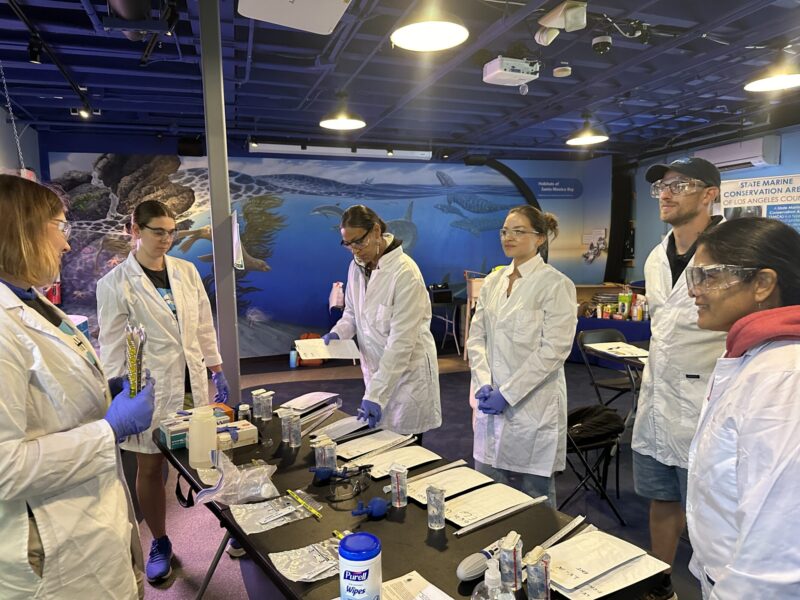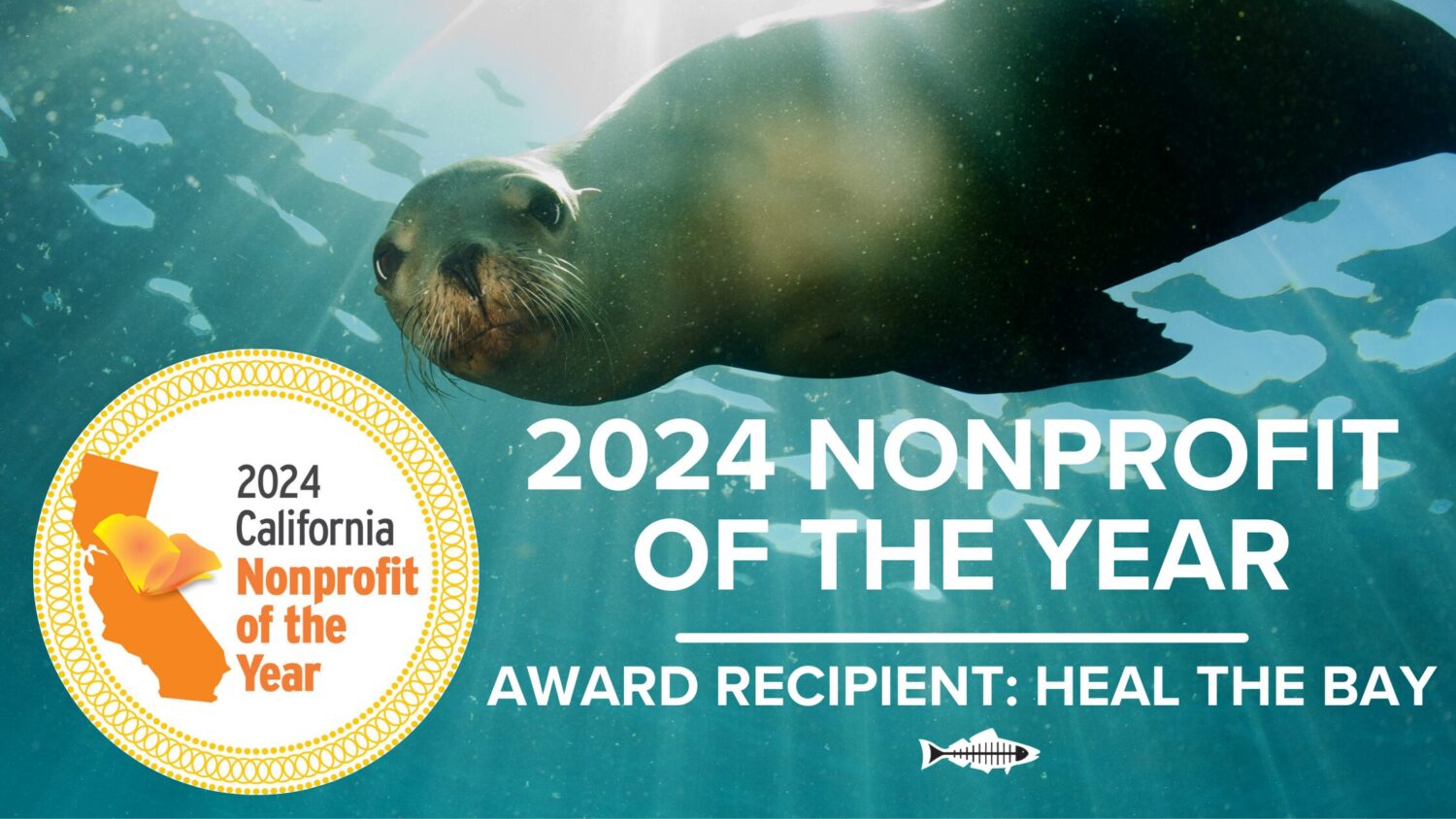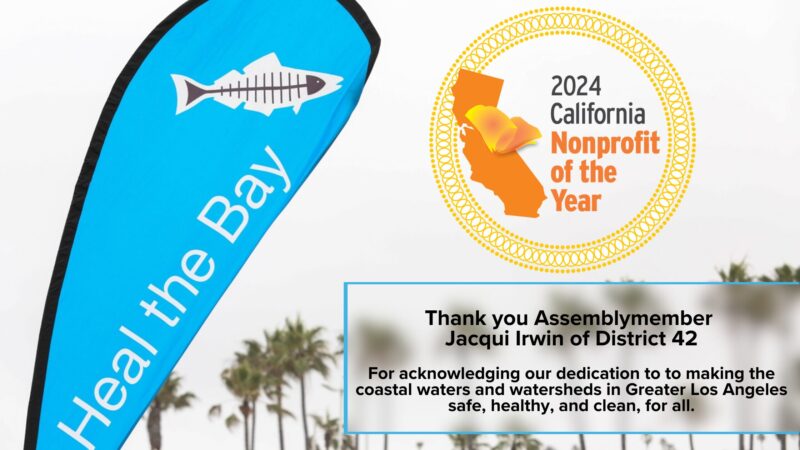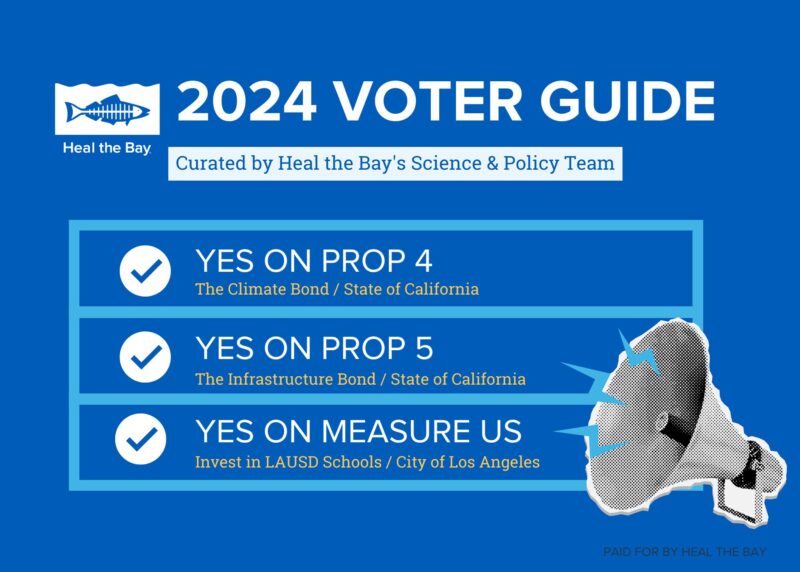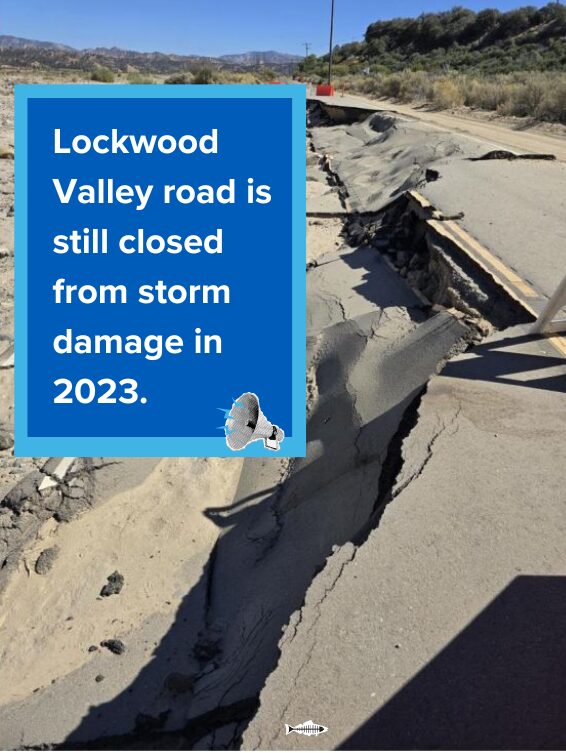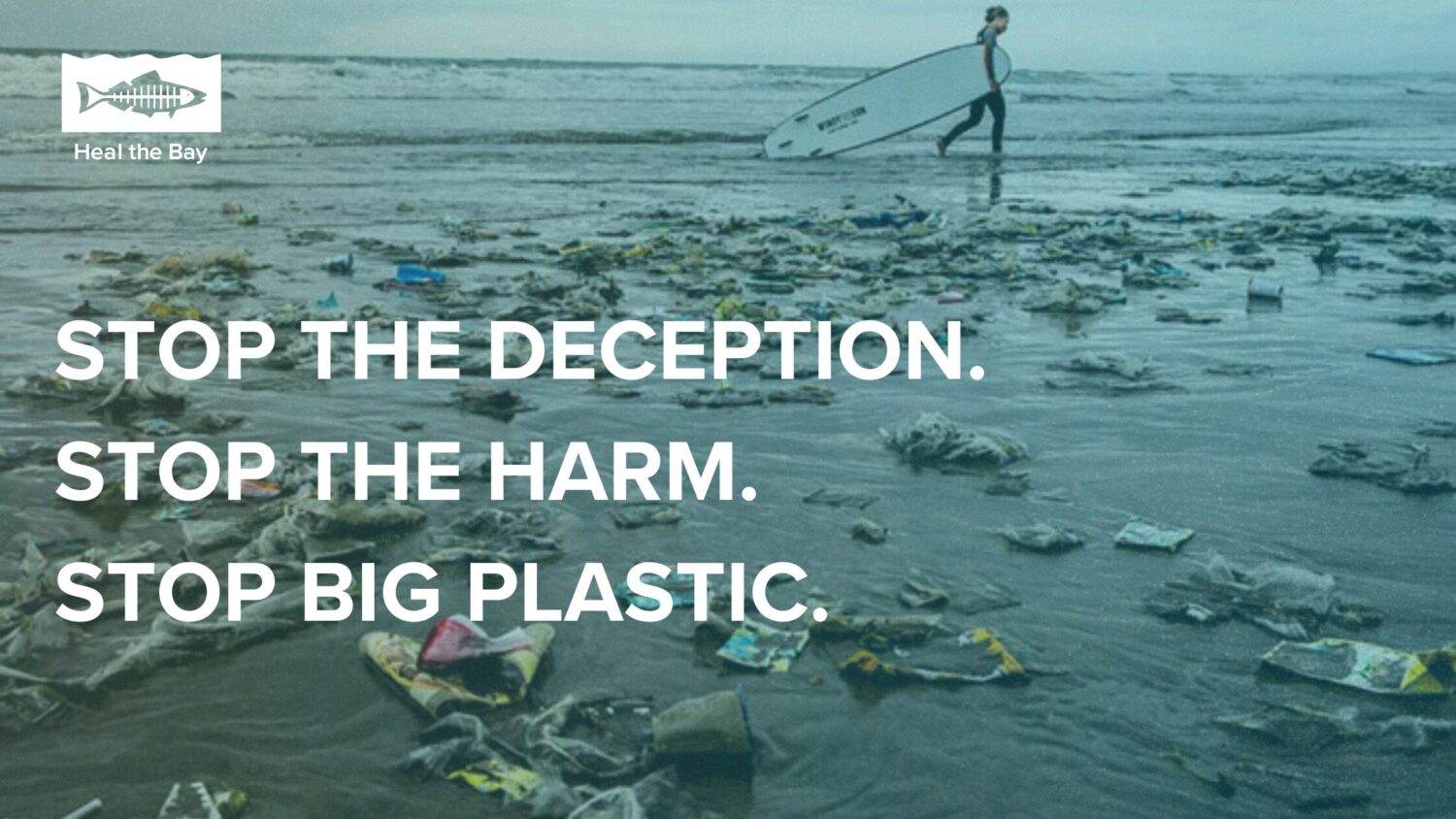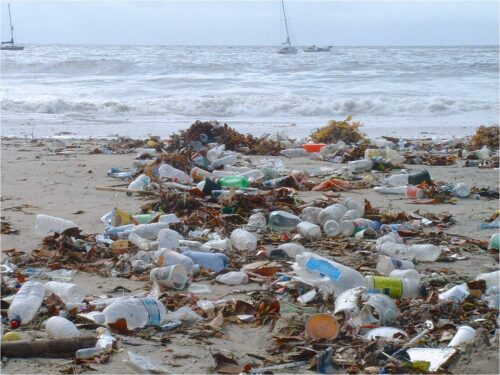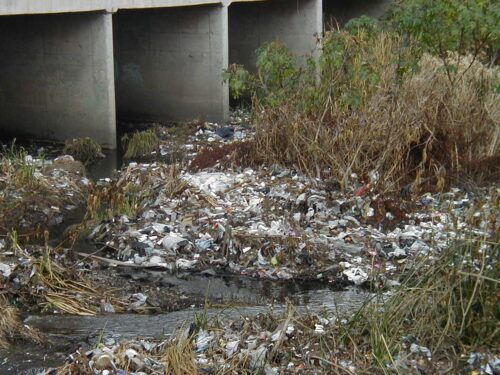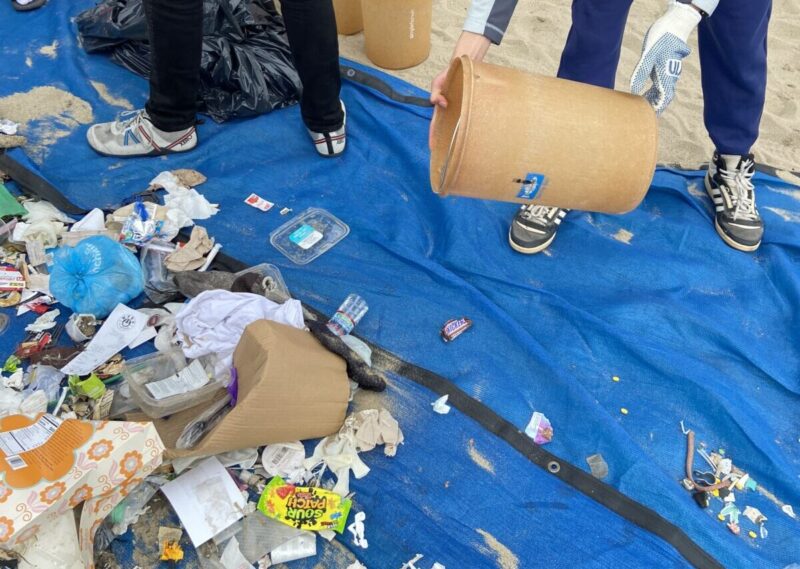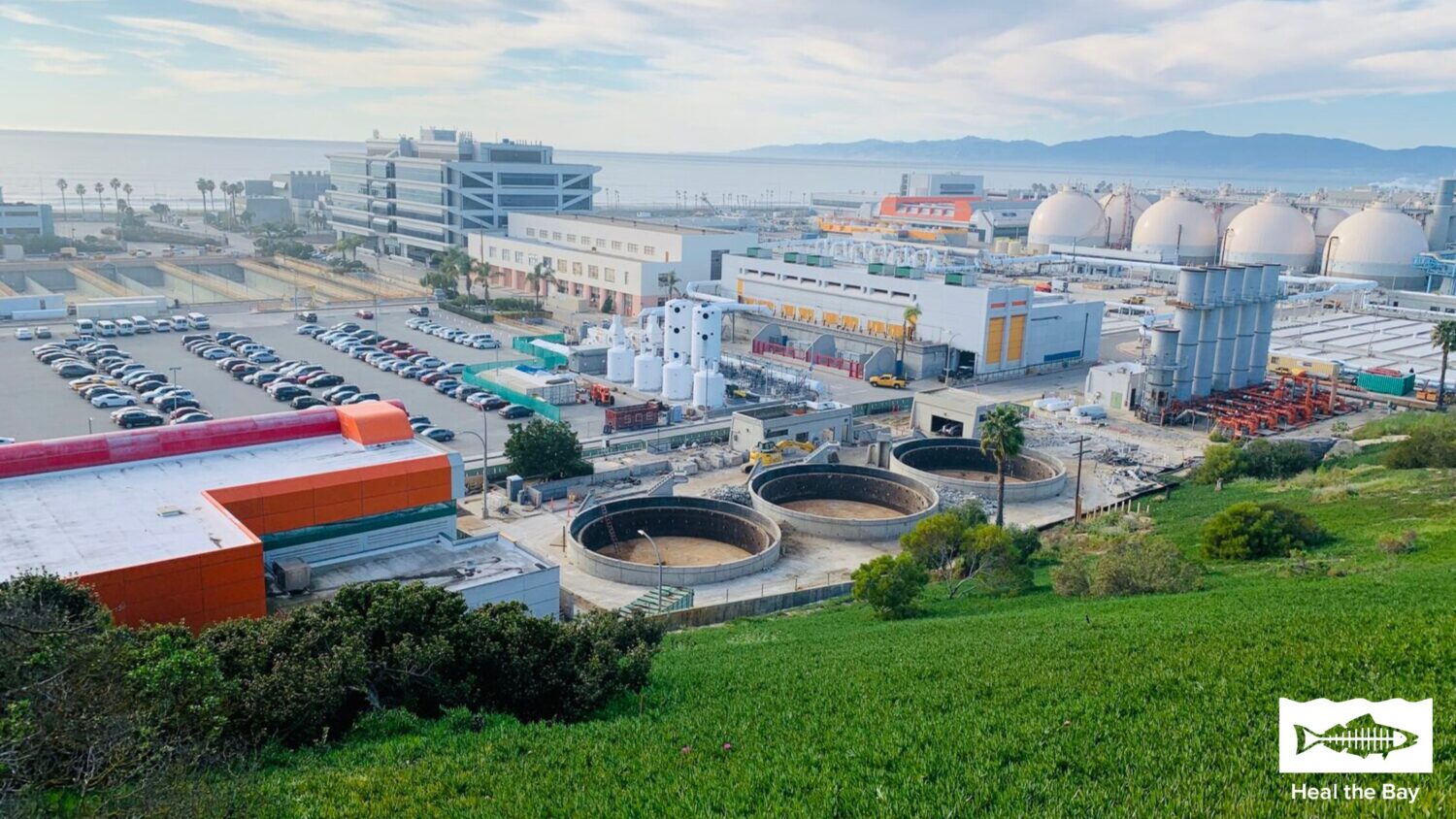Wildfire, Erosion and the Ocean
Small amounts of rain may be headed to greater Los Angeles this weekend, according to the latest weather forecasts. If precipitation comes it will be welcome relief for firefighters still battling low humidity and lingering hot spots. But the rain poses another challenge – erosion. Washing away the top layer of soil can move pollutants into the ocean, threaten water supplies and harm local ecosystems.
The first significant rain of the wet season is called the “first flush.” It washes all the pollution that has accumulated on surfaces in urban areas during the dry season into storm drains and waterways, eventually making its way to the ocean. Following the unprecedented wildfires in Los Angeles, the first flush will be amplified – carrying not only higher levels of typical pollutants like oil and grease, trash, plastic, bacteria, and heavy metals, but also wildfire debris and other hazardous materials including ash, fire suppressant, household chemicals, car batteries, and more. These contaminants pose significant risks to water quality, marine ecosystems, and public health. Immediate mitigation strategies must focus on proactive actions to reduce environmental damage and improve water quality. Erosion control measures such as mulch, silt fences, straw wattles, and contour log placement help minimize sediment runoff, while debris removal efforts, coordinated with city and county agencies, prevent further contamination.
Here’s a quick look at how rains affect recently burned areas of the region.
There is a chance of a few showers on Friday, but an increased likelihood on Saturday.
Predicted rainfall totals are only about a quarter-inch. But even that relatively small amount can lead to significant runoff, given that scorched soil has a harder job holding rainfall. February is typically the rainiest month in greater L.A., so volumes then will be heaviest. But these weekend drizzles could be harbinger of the damage to come.
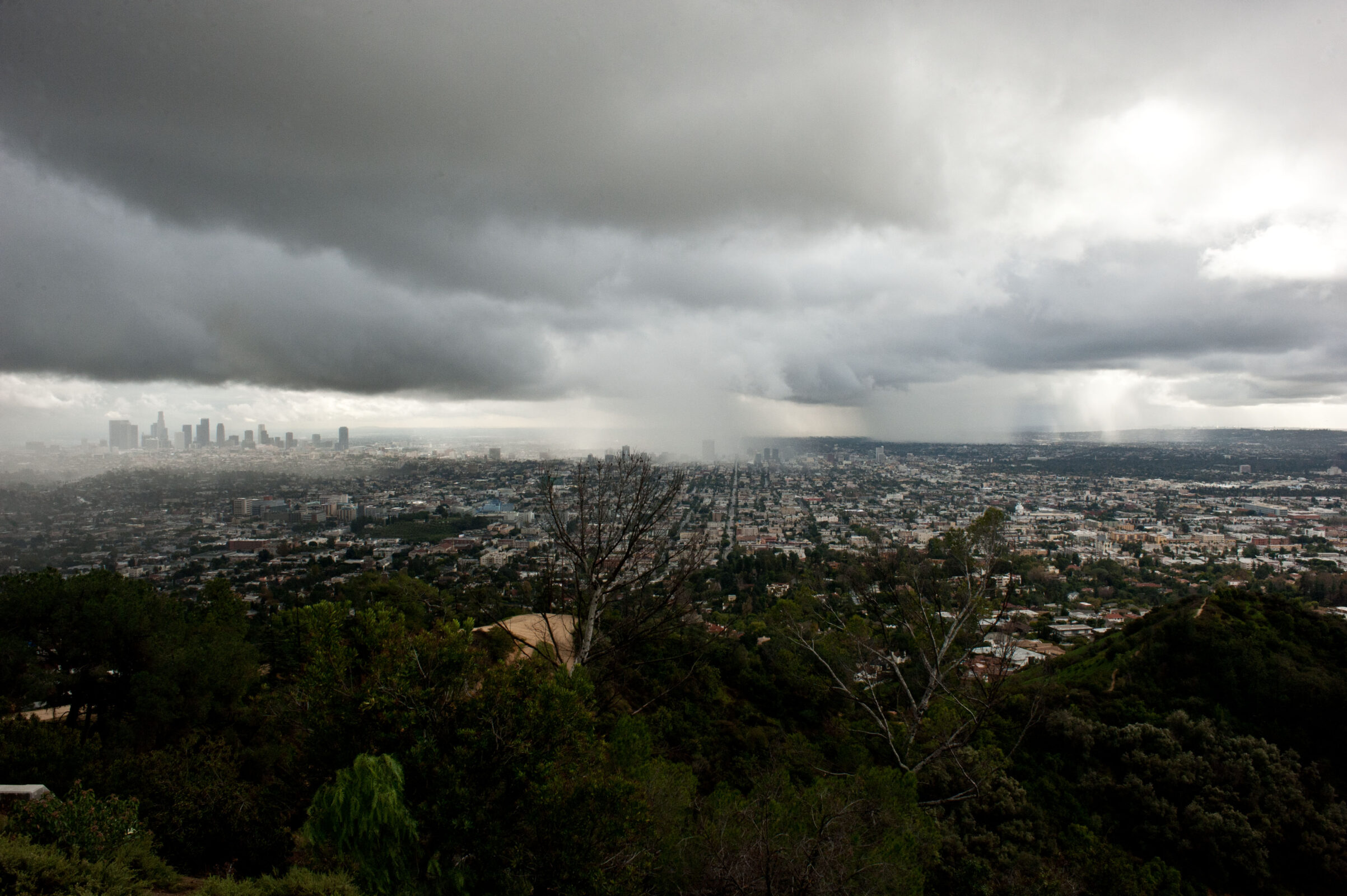
There are multiple causes of erosion after wildfire.
- Flames destroy the plant material that support and protect the soil.
- Intense heat weakens the soil structure, further harming already susceptible hillsides.
- Fire can create conditions that make the soil less likely to absorb water, which increases surface runoff.
Erosion after a wildfire can be very harmful.
- Ocean-bound sediment can be filled with PCBs, asbestos, heavy metals and other toxins
- Debris flows can choke local rivers and streams, depriving wildlife of oxygen.
- Sediment-filled runoff can damage flood control infrastructure, fill reservoirs and threaten neighborhoods.
Growing Erosion Risks After Wildfires in Los Angeles.
Wildfire-affected areas in Los Angeles will face intensified erosion, as the fires have destroyed vegetation that normally prevents erosion by stabilizing soil and slowing water runoff, and left hazardous materials behind. Scientists last year documented a tenfold increase in post-fire hillside erosion in parts of California from the late 1980s to the 2010s. However, wildfires are not the only factor, and the effects are amplified by other impacts of a changing climate. Prolonged droughts delay soil recovery, while intense rainfall increases runoff, creating a high risk of erosion. This see-saw effect will dramatically increase the amount of harmful runoff, debris and sediments that reach our oceans, shorelines, and local habitats.
Immediate Actions and Long-Term Strategies for Recovering and Stabilizing Fire-Scarred Hillsides
Erosion is usually worse one to two years after a fire, but there are steps we can take now to help minimize impacts. Immediate actions include assessing burn severity and stabilizing soil through methods such as mulching, silt fences, straw wattles, and straw-bale dams that can help reduce erosion and prevent further damage.
Monitoring watershed and coastal health will be crucial to understand immediate impacts, to address emerging issues, and to identify appropriate long-term strategies, which should include revegetating the area with native plants to stabilize soil (avoiding non-native grasses that hinder native growth and increase fire risks) and rebuilding with climate resilience in mind to reduce future wildfire risks. Partnerships between government agencies, environmental organizations, and local communities can help coordinate resources and strategies.
To safeguard Los Angeles’ water resources and combat erosion, it is essential to address the root causes such as climate change and unsustainable land management. This requires reducing fossil fuel emissions, utilizing the Coastal Act to guide rebuilding practices, and re-integrating traditional ecological practices for land and water management. In addition, investment in nature-based stormwater capture solutions can help reduce runoff and pollutants, while prioritizing the health of ecosystems and the sustainable water management.



